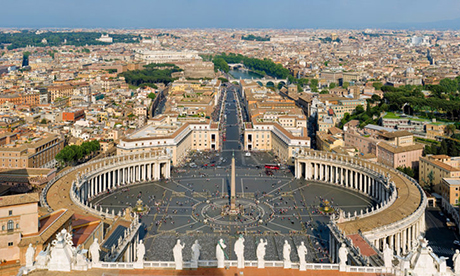Pope Francis has revamped the Vatican financial watchdog to establish “supervision aimed at the prevention and countering of money laundering and the financing of terrorism.”
Under the pope’s plan, the agency will be split into three parts, the Vatican said on Saturday. They are vigilance, rules and legal affairs, and financial information.
The Vatican’s Financial Information Authority, known as AIF, will now be called the Supervisory and Financial Information Authority, or ASIF.
This reflects its regulatory function over other Vatican entities and departments.
The overhaul is part of reforms wanted by Francis to ensure “transparency and reinforce controls in the economic-financial sector,” the agency’s president Carmelo Barbagallo, previously at Italy’s central bank, told Vatican media in an interview.
In late November, Francis told reporters aboard a papal flight that AIF had failed in “its duty of control.”
Smoking out financial scandal has been a motif of Francis’ papacy. One “opaque” investment deal in prime London real estate provoking a raid of the AIF offices in October 2019.
The Vatican suspended five employees after the raid, including the former director of the office, Italian layman Tommaso Di Ruzza.
The president of the anti-money-laundering authority, René Brülhart, resigned following the raids. Brülhart issued a strong defense of Di Ruzza and expressed dismay at his treatment by Vatican officials.
The deal-broker Gianluigi Torzi has been arrested and faces charges of extortion, embezzlement, aggravated fraud and money-laundering in the £160 million deal, which was paid for with money donated by ordinary churchgoers.
The scandal also saw the resignation of ex-cardinal Angelo Becciu. Becciu resigned following allegations he had sent €100,000 in Holy See funds to a charity controlled by his brother.
Shortly after the upheaval, the Egmont Group, a global network of financial intelligence authorities, suspended the AIF.
Beyond countering corruption and the financing of terrorism, ASIF will also be responsible for the “prudential supervision” and regulation of any Vatican office that handles investments or financial transactions. It is also tasked with carrying out financial investigations.
The new Vatican statute states that the new financial watchdog will “have access to documents and data, even of a confidential nature, and exchange information at domestic and international level.”
